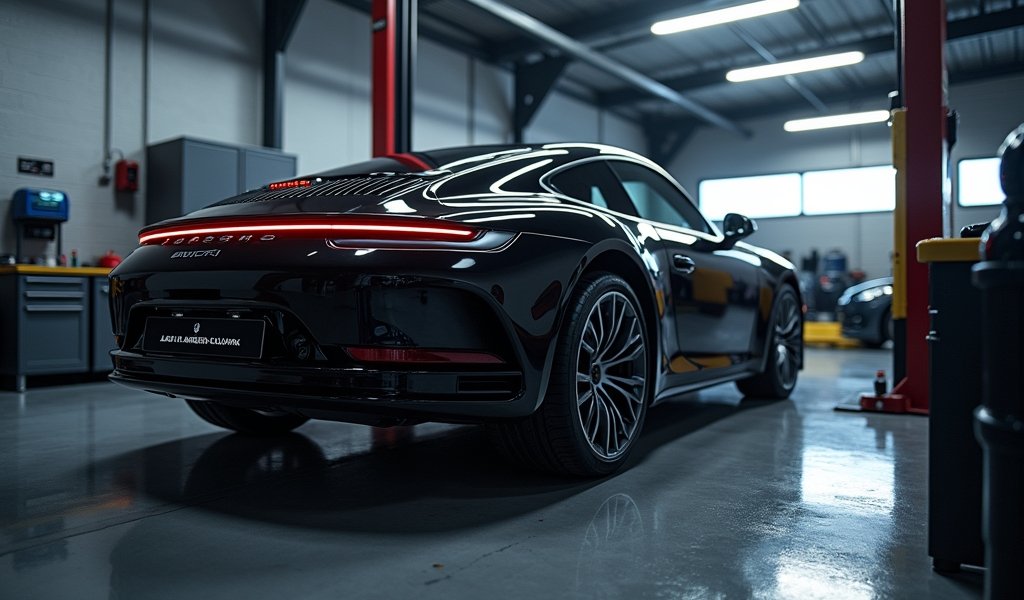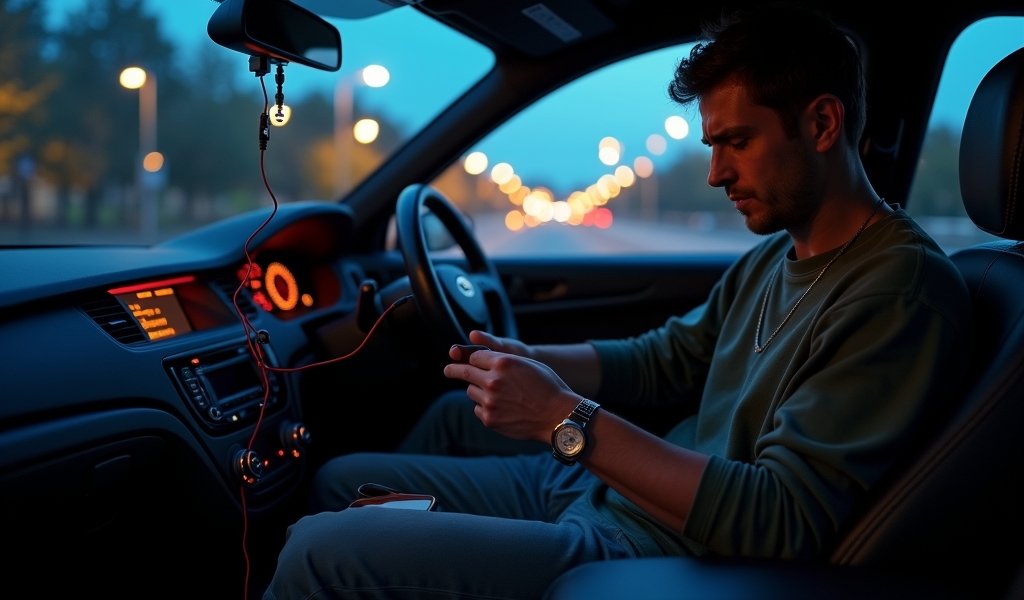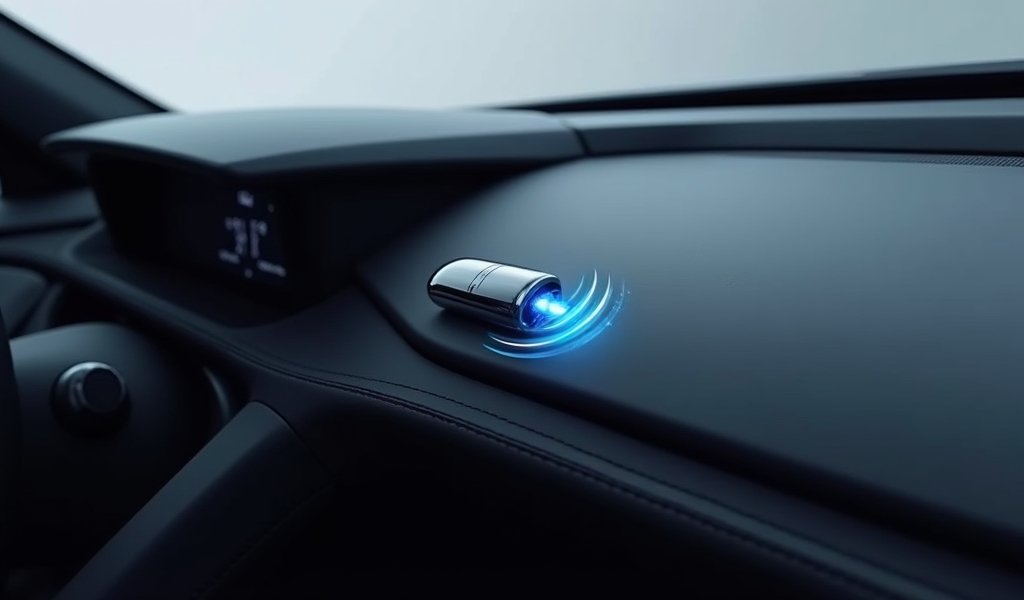Overview
This article provides a detailed guide to Bluetooth adapters for cars, covering the three main types (FM transmitters, AUX input adapters, and USB adapters), top 5 recommended products, installation instructions, and troubleshooting tips. The author emphasizes that these affordable devices ($15-40) can significantly enhance driving safety and enjoyment by enabling wireless music streaming and hands-free calling in vehicles of any age without expensive dashboard upgrades.
Table of Contents
- Understanding Bluetooth Adapters for Your Car
- Benefits of Adding Bluetooth to Your Vehicle
- Types of Bluetooth Adapters Available
- Top 5 Best Bluetooth Adapters for Cars
- Key Factors to Consider When Choosing
- Simple Installation Guide
- Troubleshooting Common Issues
- Conclusion
- Frequently Asked Questions
Understanding Bluetooth Adapters for Your Car
Many drivers find themselves in a frustrating situation: you love your reliable older vehicle, but it lacks the wireless connectivity we’ve all come to expect. That’s where the best Bluetooth adapter for car systems comes into play. These compact devices bridge the technology gap, bringing wireless convenience to vehicles of any age without requiring expensive dashboard upgrades.
As a mechanic who’s installed hundreds of these devices, I can tell you they’re genuinely transformative for the daily driving experience. Imagine streaming your favorite music, taking hands-free calls, or getting turn-by-turn navigation instructions without fumbling with cables or mounting your phone in precarious positions.
Modern Bluetooth adapters connect to your vehicle in various ways—through the cigarette lighter, AUX port, or USB connection—and create a wireless link between your car’s audio system and your smartphone. The technology has improved dramatically in recent years, with today’s models offering crystal-clear sound quality, minimal setup time, and impressive reliability that rivals factory-installed systems.
Benefits of Adding Bluetooth to Your Vehicle
Adding Bluetooth connectivity to your car isn’t just about convenience—it’s about safety and compliance too. Many states have enacted hands-free driving laws that prohibit holding phones while driving, making Bluetooth adapters practically essential for those who need to take calls on the road.
Beyond legal considerations, there are several compelling reasons to invest in a quality adapter:
- Enhanced safety with hands-free calling and voice commands
- Wireless music streaming from your favorite apps
- GPS navigation audio without mounting your phone
- Reduced distraction from fumbling with cables
- Access to voice assistants like Siri or Google Assistant
- Significantly cheaper than upgrading your entire stereo system
My customers consistently report that adding Bluetooth functionality ranks among their most satisfying vehicle upgrades. One customer, driving a 2008 Toyota Camry, told me it was “like getting a new car for thirty bucks.” The difference between fumbling with aux cables and enjoying seamless wireless connectivity simply can’t be overstated.
The technology has become so affordable and reliable that even older vehicles can benefit from modern connectivity without breaking the bank. For around $15-40, you can bring your car’s audio system into the wireless era.

Types of Bluetooth Adapters Available
Not all Bluetooth car adapters are created equal. The right choice depends largely on your vehicle’s existing audio system and your specific needs. After years of installing these devices, I’ve found there are three main categories worth understanding:
FM Transmitters
FM transmitters plug into your car’s power outlet and broadcast audio through an unused FM radio frequency. You simply tune your car radio to match the transmitter’s frequency. These are ideal for older vehicles without auxiliary inputs and work with virtually any car that has a radio.
Pros: Universal compatibility, easy setup, no wires needed for audio transmission
Cons: Sound quality can be affected by local radio interference, especially in urban areas
Auxiliary (AUX) Input Adapters
These connect directly to your car’s 3.5mm auxiliary input jack, providing the cleanest possible audio connection. They’re typically small, sometimes battery-powered devices that create a direct line between your phone and car speakers.
Pros: Superior sound quality, compact size, simple operation
Cons: Requires your vehicle to have an AUX port, may need occasional recharging if battery-powered
USB Bluetooth Adapters
USB adapters connect to your car’s USB port (if available) primarily for power but deliver audio through another method, usually AUX or FM transmission. Some newer cars with USB ports can receive both power and audio through this connection.
Pros: Consistent power source, often includes charging capabilities for your phone
Cons: Limited to vehicles with USB ports, may still require separate audio connection
According to Consumer Reports research, FM transmitters are the most versatile option but auxiliary adapters typically deliver the best audio experience. Your ideal choice depends on your vehicle’s existing inputs and your priorities between convenience, sound quality, and features.
Top 5 Best Bluetooth Adapters for Cars
After testing dozens of models across different vehicles and situations, here are my top recommendations based on real-world performance:
1. Anker Roav SmartCharge F2
The Roav SmartCharge F2 is the Swiss Army knife of car Bluetooth adapters. It combines an FM transmitter with dual USB charging ports and call noise cancellation technology. I’ve installed this in everything from 1990s pickup trucks to 2010s sedans with consistently positive feedback.
What stands out is its PowerIQ charging technology that intelligently identifies your device to deliver the fastest possible charge. The sound quality is remarkably clean for an FM transmitter, and the wide frequency range (87.5-108.0MHz) helps you find clear channels even in radio-crowded areas.
Price range: $20-30
2. Mpow BH129 Bluetooth Receiver
For vehicles with an AUX input prioritizing audio quality, the Mpow BH129 is my go-to recommendation. This small, battery-powered device delivers consistently excellent sound with minimal setup hassle. Its 15-hour battery life means you won’t be constantly recharging, and the one-button control system is refreshingly straightforward.
Customers particularly appreciate its compact design that doesn’t clutter dashboards. I’ve found it particularly useful in vehicles where the AUX port is in an awkward location, as its small profile and minimal wiring keep things tidy.
Price range: $15-20
3. Nulaxy KM18 FM Transmitter
The Nulaxy KM18 earns its place through versatility and information display. Its 1.8-inch screen shows everything from song titles to caller ID and even your car’s battery voltage (a surprisingly useful diagnostic feature). The flexible gooseneck design lets you position it perfectly regardless of where your power outlet is located.
What impresses me most is its adaptability—it offers FM transmission, an AUX output, and USB playback options, effectively covering all bases. For older vehicles especially, this flexibility can be invaluable when dealing with inconsistent radio reception.
Price range: $18-25
4. TaoTronics Bluetooth 5.0 AUX Adapter
For the audiophiles among my customers, the TaoTronics adapter with aptX low-latency support delivers the most premium sound experience. This technology reduces the slight audio delay common in Bluetooth connections, making it perfect for not just music but also video content if you have backseat passengers watching on tablets.
Its ability to connect to two devices simultaneously is perfect for families or couples who share driving duties. The included ground loop noise isolator eliminates the engine noise interference that plagues many other adapters—a thoughtful inclusion that makes a noticeable difference.
Price range: $25-35
5. Sumind Bluetooth FM Transmitter
Sometimes a bit of style makes all the difference, and the Sumind delivers functionality with flair. Its RGB ambient lighting with seven color options adds a modern aesthetic touch to any vehicle. Beyond the light show, it packs solid features including bass enhancement, multiple playback options, and QC3.0 fast charging support.
I often recommend this to younger drivers or those looking to add some personality to older vehicles. Despite the lighting features, it doesn’t sacrifice on performance, maintaining reliable connections and clear sound across different vehicle types.
Price range: $15-25
Key Factors to Consider When Choosing
With so many options available, finding the best Bluetooth adapter for your specific car requires considering several important factors:
Connection Type Compatibility
First and foremost, check what inputs your vehicle has available. If you have an AUX port, that generally provides the best audio quality. No AUX? Look for a quality FM transmitter. USB ports can provide power but may not handle audio without additional connections.
Take a minute to examine your dashboard and console before purchasing—it’ll save you potential returns and frustration. Remember that cigarette lighter/12V power outlets are standard in most vehicles, making FM transmitters nearly universally compatible.
Sound Quality Requirements
Be realistic about your audio expectations. If you’re an audiophile who notices every nuance in music, prioritize adapters with AUX connections and advanced audio codecs like aptX. If you’re mainly using it for occasional calls and casual music, most FM transmitters will serve you well.
In my experience, the environment you drive in also matters—rural drivers typically experience fewer FM interference issues than city dwellers surrounded by radio stations. Your listening habits should guide your choice here.
Additional Features Worth Considering
- Voice assistant support: Ensures compatibility with Siri or Google Assistant for truly hands-free operation
- Noise cancellation: Critical for clear calls, especially in louder vehicles
- Multi-device pairing: Convenient for families or couples sharing a vehicle
- Display screen: Shows caller information, song details, and sometimes diagnostic data
- Extra USB ports: Allows for phone charging while using Bluetooth functionality
I’ve found that modern car technology features like voice control become significantly more useful when paired with a quality Bluetooth adapter. The convenience of asking for directions or dictating messages without touching your phone transforms the driving experience.
According to J.D. Power research, drivers who use hands-free technology report higher satisfaction with their vehicles and reduced stress during commutes. The right adapter can deliver much of this benefit without purchasing a new car.

Simple Installation Guide
Installing a Bluetooth adapter is typically straightforward, but a few professional tips can make the process even smoother:
For FM Transmitter Installation
- Plug your adapter into your car’s power outlet or USB port
- Turn on the adapter and select an unused FM frequency (search between 88.1-107.9)
- Tune your car radio to the same frequency you selected on the adapter
- Enable Bluetooth on your smartphone and pair it with the adapter (usually by selecting it in your Bluetooth settings)
- Test the connection by playing audio from your phone
Pro tip: In urban areas, find an FM frequency with absolutely no signal for clearest transmission. Write down this frequency somewhere accessible so you don’t have to hunt for it again.
For AUX Adapter Installation
- Locate your car’s AUX input (typically labeled with “AUX” or headphone icon)
- Connect the Bluetooth adapter’s 3.5mm plug to this port
- Power on the adapter (either via its internal battery or by connecting to USB/power outlet)
- Put the adapter in pairing mode (usually by holding the main button)
- Pair your smartphone with the adapter via Bluetooth settings
- Set your car’s audio source to “AUX” or “Line In” using your stereo controls
For optimal performance, I recommend positioning adapters with built-in microphones high on your dashboard, away from air vents and within 2-3 feet of the driver’s position. This placement dramatically improves call clarity while minimizing wind noise from climate controls.
Troubleshooting Common Issues
Even the best Bluetooth adapters occasionally encounter problems. Here’s how to solve the most common issues I see in my shop:
Poor Sound Quality
- For FM transmitters: Try different frequencies, especially those at the extreme ends of the band (88.1-89.1 or 107.1-107.9)
- Move the adapter to different positions to improve antenna reception
- Reduce the distance between your phone and the adapter
- Check for physical obstructions or electronic interference from other devices
Connection Problems
- Ensure your phone’s Bluetooth is enabled and discoverable
- Reset the adapter by unplugging it for 10 seconds, then reconnecting
- Clear previously paired devices from your phone’s Bluetooth settings
- Check if your adapter needs a firmware update (some models offer this)
Charging or Power Issues
- Try a different power outlet if your vehicle has multiple options
- Clean the power outlet of any debris or dust that may affect connection
- For battery-powered units, ensure they’re fully charged before use
- Check if your car’s power outlets remain active when the engine is off (some shut down automatically)
I’ve found that most connection issues resolve with a simple “reset” procedure: turn off your car, remove the adapter, wait 30 seconds, then reconnect everything. This refreshes both your car’s electrical system and the adapter’s internal circuitry, often solving mysterious glitches.
For persistent issues with FM transmitters, consider using an RF signal strength app on your smartphone to identify truly clear frequencies in your area. This professional approach can significantly improve performance in radio-crowded environments.
Conclusion
After years of installing and testing various models, I’m convinced that the best Bluetooth adapter for car use depends primarily on your vehicle’s existing features and your personal priorities. For most drivers, the Anker Roav SmartCharge F2 offers the best balance of versatility, sound quality and additional features like charging capability.
If sound quality is your top priority and you have an AUX input, the TaoTronics or Mpow options deliver exceptional audio experiences. For older vehicles without modern inputs, the Nulaxy KM18’s flexibility makes it a standout choice that works in virtually any car.
What continues to impress me is how these simple, affordable devices can dramatically transform the driving experience. For under $30, you can bring modern connectivity to vehicles of any age, making your daily commute safer, more enjoyable, and aligned with today’s digital lifestyle.
Remember that proper installation and positioning make all the difference in performance. Take the extra minute to secure cables, position microphones appropriately, and find optimal FM frequencies. Your small investment in time will pay dividends in reliability and convenience every time you drive.
Whether you’re upgrading a beloved older vehicle or adding functionality to a newer model that somehow missed Bluetooth integration, these adapters represent one of the most cost-effective improvements you can make to your daily driving experience.
Frequently Asked Questions
Will a Bluetooth adapter drain my car battery if I leave it plugged in?
Most adapters draw minimal power when the car is off, but some older vehicles with always-on power outlets could experience minor drain. I recommend unplugging the adapter when leaving the car for extended periods, especially in vehicles older than 2010.
Do I need to disconnect my phone every time I exit the car?
No, most adapters will automatically reconnect to your phone when you start your car again. Your phone just needs to have Bluetooth enabled and be within range when you restart the vehicle.
Can these adapters work with both music and phone calls?
Yes, all modern Bluetooth car adapters support both audio streaming and hands-free calling. Call quality varies between models, with those featuring noise cancellation technology performing best.
Will my steering wheel controls work with a Bluetooth adapter?
Generally no, steering wheel controls communicate with your factory stereo system. However, many adapters include their own control buttons or work with your phone’s voice assistant for similar functionality.
Can I connect multiple phones to one Bluetooth adapter?
Some advanced models like the TaoTronics support multi-point pairing for two devices simultaneously. Most standard adapters can pair with multiple devices but connect to only one at a time.


Pingback: Smart Car Diagnostic Tool 5 Proven Fixes - knowsyourcar.com